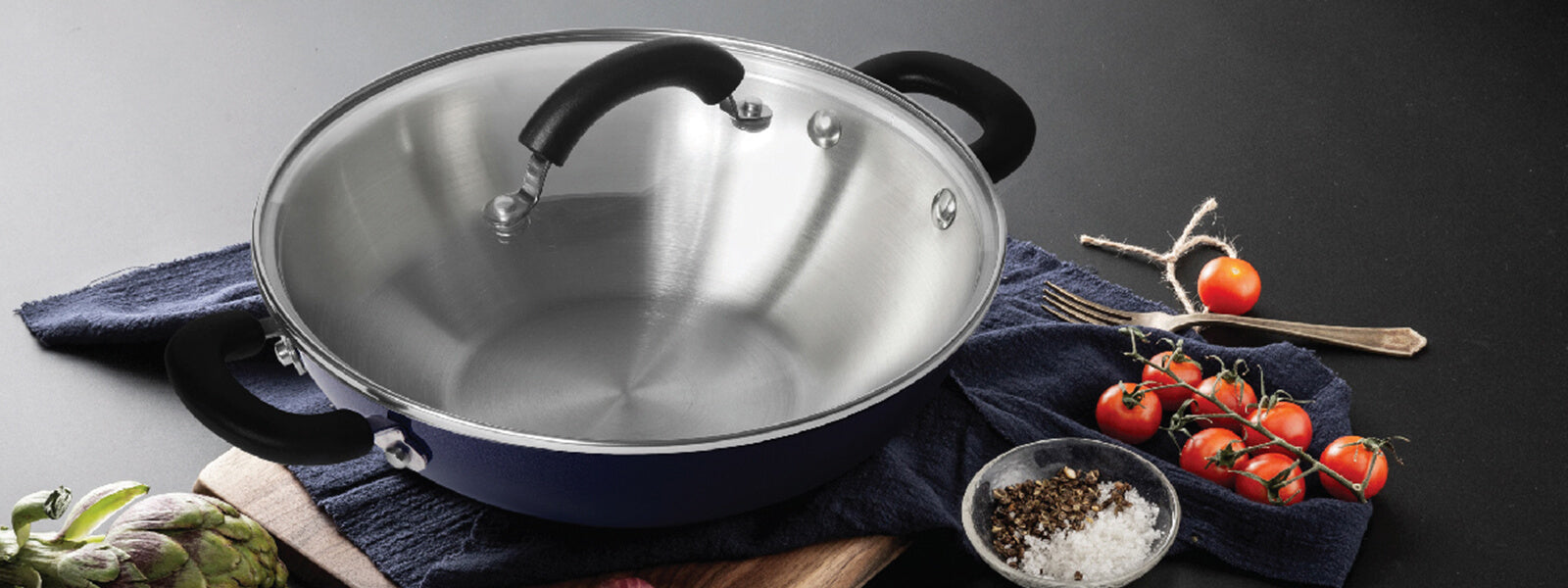You may not have heard of kalmegh before, but trust us when we say that after reading this article, you will fall in love with it!
It is a seasonal plant that is indigenous to India and Sri Lanka and is known by the scientific name andrographis paniculata, and in Hindi, it is referred to as kalmegh. It is one of the most well-known medicinal herbs and has long been used to cure a variety of ailments, including malaria, diarrhoea, diabetes, hypertension, ulcers, bronchitis, and skin conditions. Kalmegh's antifertility, anti-inflammatory, antibacterial, antiviral, and immuno-stimulatory qualities are also well-known in the Indian medical system.
Yellowish-brown seeds with an extremely bitter flavour define kalmegh. About 26 Ayurvedic herbal formulations include it. Even though andrographis paniculata or kalmegh has a harsh flavour, it offers unrivalled health advantages. As kalmegh resembles neem in appearance and taste but is smaller, it is also known as "Bhui Neem."
Table of Contents
About Kalmegh:
Kalmegh is a perennial plant with upright growth. In tribal medicine and in the Siddha and ayurvedic medical systems of India, it is regarded as a miracle medication. Andrographis Paniculata is the scientific name for kalmegh, which is an Acanthaceae plant. The plant's leaves and roots are reported to be excellent analgesics with additional benefits for treating constipation and the liver. It is recommended that you boil a combination of leaves and water to cure stomach infections.
Origin of Kalmegh:
According to demographic data, the Kirat tribe, which in ancient times resided in the Himalayan forests between them, is where the herb Kalmegh had its start. The phrase Kiratatikta, which means bitter herb of the Kirata tribe, is the source of the name Kalmegh derivation.
Health benefits of Kalmegh:
In addition to helping to maintain healthy immunological and respiratory systems, this herbal combination also controls body temperature. There are several ailments that this plant may be used to treat. Some of its advantages are:
- It alleviates typical cold symptoms
It is thought that taking andrographis either by alone or in conjunction with other herbs may help some individuals with their cough and sore throat.
- It can also lessen osteoarthritis
Those who have mild to severe osteoarthritis of the knee may find that taking andrographis extract on a regular basis helps to lessen their pain and stiffness.
- It has a tonne of antioxidants
Antioxidants and polyphenols abundant in kalmegh may aid in the body's defence against dangerous free radicals. This appears to shield the bodily cells from dangerous germs and viruses in turn.
- The anti-inflammatory capabilities of kalmegh
The ability of the body to successfully fight infections may be enhanced by kalmegh anti-inflammatory qualities. Additionally, this herb may aid in tissue restoration, which makes it incredibly beneficial. Additionally, kalmegh aids in reducing pain and swelling brought on by bodily inflammation.
- It helps with digestion
Kalmegh assists in properly managing digestive issues including appetite loss. Due to its ushna (hot) character, it may also aid in improving the digestive fire as well as liver functioning.
- It is beneficial for the liver
Additionally, kalmegh aids in the treatment of liver issues. It possesses hepatoprotective, anti-inflammatory, and antioxidant effects that may lessen the risk of free radicals damaging liver cells.
- It eliminates intestinal worms
Kalmegh is said to support healthy intestinal function and aid in the elimination of intestinal worms.
- It may even prevent acne
The antibacterial and antimicrobial characteristics of the Ayurvedic herb also aid in the treatment of skin conditions. Kalmegh, which is abundant in antioxidants, aids in the battle against dangerous free radicals, which can cause a variety of physical and cosmetic problems.
- It has antimicrobial qualities
The body may be able to combat bacterial infections thanks to kalmegh antibacterial capabilities. Even though andrographis seems to have a little direct antibacterial impact, it may be helpful in lowering diarrhoea and other symptoms brought on by bacterial infections.
- Can aid in managing diabetes
The kalmegh compound andrographolide lowers blood glucose levels. It could aid in the pancreatic cells' release of insulin, facilitating the use of glucose. The high antioxidant content of kalmegh may also assist to reduce the risk of diabetic complications.
- It's fantastic for skin purification and detox
According to studies, kalmegh has the ability to cleanse the blood. It could aid in treating skin conditions and removing toxins from the blood. This is as a result of its pitta-balancing and tikta (bitter) flavour.
- It possesses antiviral qualities
According to studies, the antiviral activities of kalmegh andrographolide. In fact, China required all doctors, regardless of their level of training, to utilise andrographis to combat coronavirus. Clinical evidence that this plant can help fight the fatal illness, however, is lacking.
How to use Kalmegh?
The kalmegh plant body may be utilised in its entirety to produce active pharmaceutical chemicals.
- As an official medication, the plant's juice, fresh leaves, and dried leaves are all used.
- Buttermilk and garlic are traditionally used with kalmegh leaf powder to treat jaundice.
- The plant's fresh leaves and twigs ground into a paste.
Conclusion:
Today, kalmegh is employed on a global scale. The herb is still grown naturally in India and has benefits beyond immune support. By reducing pitta and kapha in the head and chest and breaking through viscous phlegm brought on by elevated kapha, the herb also helps to maintain a normal body temperature.
It may also support a healthy respiratory system, sinuses, and throat, and it may be used topically to balance excess pitta in the skin. Kalmegh bitter and sedative properties may assist to control elevated pitta in the blood and stagnant pitta in the liver, to improve liver function, and to promote bile production. With these wonderful advantages, kalmegh bitter flavour has just become sweeter!











Leave a comment